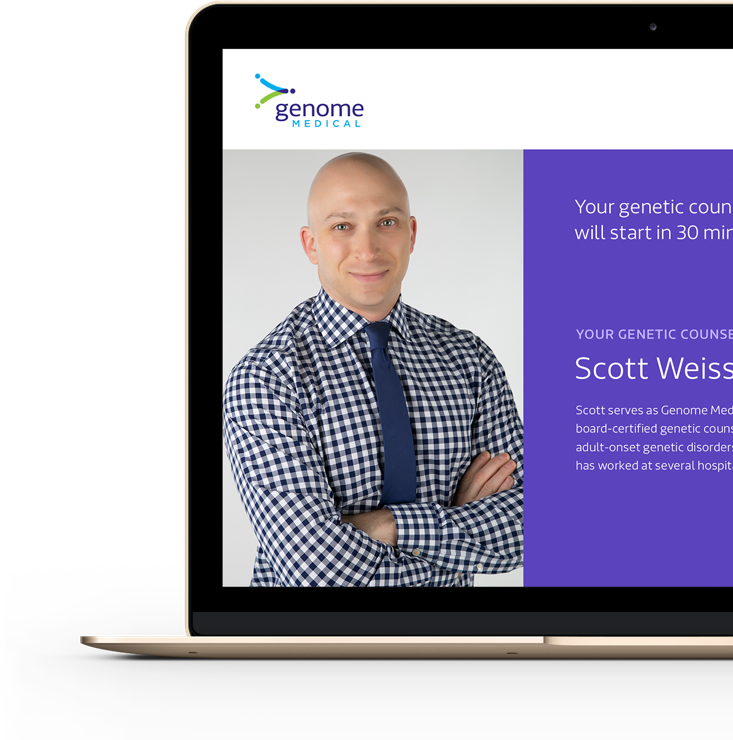A Young Mom Takes
Preventive Action
Molly Stuart, 33, Cincinnati
Mother of two
I knew I had to make decisions that
would be best for my family.
My mother had breast cancer and found out she had a mutation in the BRCA1 gene. She definitely wanted me to be tested. And my aunt was diagnosed with breast cancer at age 31, and died at 41—which is pretty scary and a big reason I wanted to get tested sooner rather than later.
But I was nervous. Back in my 20s, I thought, “What if nobody wants to date me or marry me? What if I need a mastectomy?” As I got older, I decided it was a lot more important to take care of myself.
Two years ago, I talked to my primary care physician about testing, and she didn’t really know much about it. She told me I didn’t need to do anything until age 40; I was 31 at the time.
Thankfully, my husband said, “That’s not right.” He pushed me to go ahead and get tested.
At the time, I had a newborn, and my husband travels every week. I was so happy that I could meet with my genetic counselor from home, by video. Not having to load the baby in the car, drive downtown, find parking—it was very nice.
Going into the testing, I was expecting a positive result, due to my family history.
GENOME MEDICAL SERVICES

Cancer
Have questions about how your genetics may impact your health?
Genome Medical is currently accepting new patients. Schedule your genetic consultation today.
GENOME MEDICAL TREATMENT NOTES
Molly underwent genetic testing for 17 different genes linked to hereditary breast cancer. Although her mother was known to have a BRCA1 mutation, about 3 to 5 percent of women and men can actually have more than one hereditary cancer gene mutation, and she did not want to miss any potential additional risks.
Scott Weissman, MS LCGC
Molly’s Genome Medical genetic counselor

It was somewhat of a relief to finally know that I was positive and could immediately start coming up with a prevention plan. I knew I had to make decisions that would be best for my family. So I was mainly thinking about how I could prevent getting breast cancer altogether.
It was great to have my genetic counselor there to talk to about my options and come up with a plan. I felt very comfortable talking to him and asking him questions. It felt a lot more personal than I expected.
Now I go every six months to my breast surgeon and have a mammogram. Six months later, I have an MRI. After I have my next baby, I’m thinking that a year or so later I will have a double mastectomy. My genetic counselor also said that I would need to have my ovaries out by age 35. That was another factor in thinking about how many kids I will have, and when to have kids.
It makes me feel a whole lot better knowing I can take care of the problem and don’t have to worry about it.
It gives me peace of mind.

